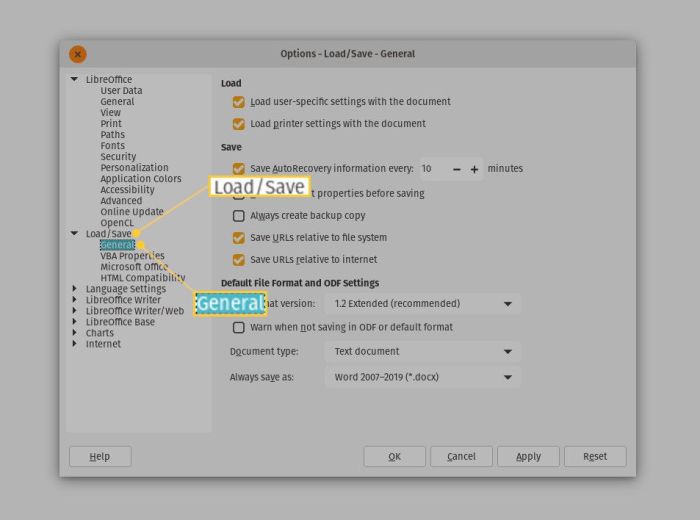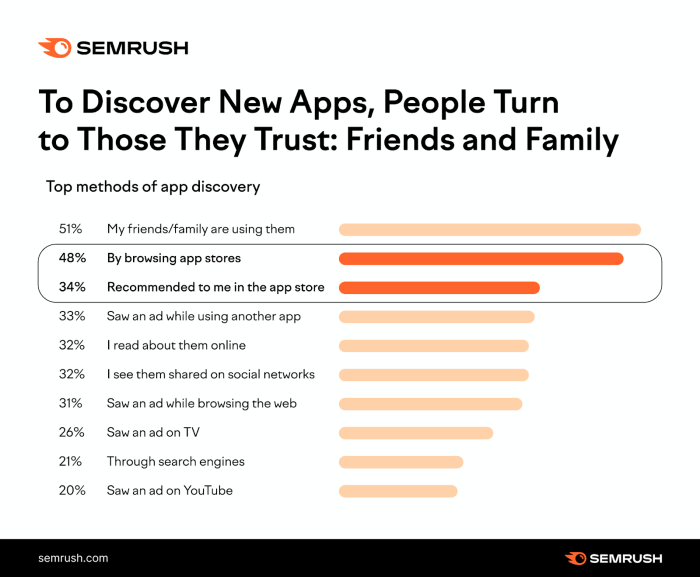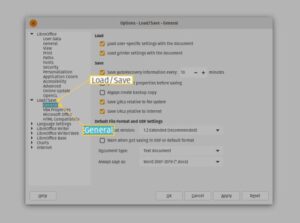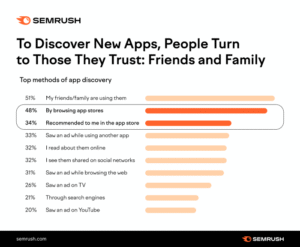Is Programming Good Career 2025
Is programming good career 2025 – Is programming a good career 2025? This question delves into the exciting and ever-evolving world of programming, examining the potential for career success in this dynamic field. The current and future demand for programmers, coupled with the various career paths and required skills, will be explored in detail. A comparative analysis of programming languages and their market trends will provide a comprehensive understanding of the landscape.
The article will also discuss the essential skills, both technical and soft, needed for success in the field. It will examine the role of problem-solving and critical thinking in programming, and explore the evolving job market trends and opportunities for programmers in 2025. Furthermore, the article will analyze the education and training paths available for aspiring programmers, highlighting online resources and bootcamps.
It will also touch on future trends in programming, ethical considerations, and work-life balance.
Introduction to Programming as a Career in 2025
The programming field in 2025 is poised for significant growth, driven by the ever-increasing demand for software solutions across various industries. From mobile applications and web development to artificial intelligence and data science, programmers are crucial to innovation and progress. The evolving landscape necessitates adaptability and a focus on emerging technologies.The demand for programmers in 2025 is projected to remain robust, with particular strengths in areas like AI development, cloud computing, and cybersecurity.
Existing sectors like web and mobile development will continue to require skilled professionals, while new specializations are emerging constantly. This dynamic environment requires continuous learning and a willingness to adapt to new tools and technologies.
Current and Projected Demand for Programmers
The demand for programmers across various specializations is expected to be high. Data scientists, machine learning engineers, and cloud architects will be in high demand due to the rise of data-driven decision-making and cloud-based services. The growing importance of cybersecurity necessitates a strong need for skilled security engineers and penetration testers. While traditional web and mobile development roles will remain vital, the focus will shift towards more specialized skills and expertise.
Typical Career Paths and Progression Opportunities
Entry-level positions in programming typically involve tasks like developing and maintaining software applications. With experience and advanced skills, programmers can progress to senior roles, team leadership positions, or even become architects responsible for the design and implementation of complex systems. Furthermore, many programmers find success in consulting roles, advising businesses on their technological needs. This progression is often dependent on continuous learning and the development of advanced skills.
Required Skills and Knowledge for Success
Success in programming roles in 2025 demands a combination of technical proficiency and soft skills. Strong fundamental programming knowledge in at least one language is essential. Proficiency in problem-solving, critical thinking, and collaboration are also highly valued. Additionally, understanding of data structures, algorithms, and design patterns is critical. The ability to adapt to new technologies and methodologies is paramount in this dynamic environment.
Comparison of Programming Languages and Job Market Trends
The job market for programming languages is constantly evolving. Here’s a comparison of some popular languages and their projected trends:
| Programming Language | Job Market Trend (2025 Projection) | Strengths |
|---|---|---|
| Python | High demand, particularly in AI, data science, and machine learning | Versatile, easy to learn, strong libraries |
| JavaScript | High demand, essential for web development and front-end development | Dominant in web development, versatile frameworks |
| Java | Moderate demand, still used in enterprise applications and Android development | Robust, object-oriented, platform independence |
| C++ | Moderate demand, crucial for performance-critical applications and game development | High performance, control over hardware |
| Go | Growing demand, widely used in cloud computing and microservices | Efficient, concurrent programming |
Skills and Knowledge Needed for Success: Is Programming Good Career 2025
The programming landscape in 2025 will demand a unique blend of technical prowess and adaptable soft skills. Success hinges on mastering essential programming languages and frameworks while simultaneously developing crucial interpersonal and problem-solving abilities. Staying current with emerging technologies and adapting to changing industry demands will be key to thriving in this dynamic field.The competitive nature of the tech job market necessitates a proactive approach to skill development.
Programmers must continuously learn and refine their abilities to remain relevant and valuable to employers. This involves a commitment to staying abreast of the latest trends and technologies in programming.
Essential Programming Skills
Understanding the fundamentals of programming languages is crucial for any aspiring programmer. Beyond syntax and semantics, fluency in languages like Python, JavaScript, and Java remains highly sought after. Proficiency in specific frameworks (e.g., React, Angular, Spring) within these languages will significantly enhance employability. Furthermore, mastery of tools like Git for version control and debugging tools is indispensable.
Soft Skills for Programmers
Beyond technical skills, soft skills are increasingly vital. Effective communication is paramount for collaboration. Clear articulation of ideas, both verbally and in writing, is essential for successful teamwork and project delivery. Problem-solving and critical thinking are crucial for navigating complex issues. The ability to break down complex problems into manageable components and propose effective solutions is a highly valued trait.
Adaptability and a growth mindset are also essential in a constantly evolving technological landscape.
Theoretical Knowledge vs. Practical Experience, Is programming good career 2025
While theoretical knowledge forms the bedrock of programming, practical experience is equally, if not more, important. A solid grasp of algorithms, data structures, and design patterns is foundational. However, translating this knowledge into tangible applications through projects and real-world scenarios is what truly distinguishes proficient programmers. Exposure to diverse programming challenges and opportunities to apply knowledge is paramount.
Problem-Solving and Critical Thinking
The ability to approach challenges with a systematic and critical mindset is highly valued. Programmers must be adept at identifying the core problem, analyzing possible solutions, and evaluating their effectiveness. This involves the development of analytical skills, logical reasoning, and the ability to identify and resolve potential issues proactively. The capacity to adapt to unforeseen circumstances and refine solutions based on feedback is also vital.
Top 5 In-Demand Programming Skills for 2025
| Rank | Skill | Description |
|---|---|---|
| 1 | Python | A versatile language for data science, machine learning, and scripting. |
| 2 | JavaScript | Essential for front-end web development and increasingly important for back-end applications. |
| 3 | Data Structures & Algorithms | Fundamental to designing efficient and scalable programs. |
| 4 | Cloud Computing (e.g., AWS, Azure) | Essential for deploying and managing applications in the cloud environment. |
| 5 | Agile Methodologies | Crucial for collaborative development in dynamic environments. |
Job Market Trends and Opportunities
The programming job market in 2025 is poised for continued growth and dynamism, driven by the ever-increasing demand for software solutions across various sectors. This evolution necessitates a nuanced understanding of emerging trends and the specific skills programmers need to thrive. This section will Artikel the current landscape, key industry trends, and the most sought-after programming roles in 2025, while considering geographical variations and potential salary expectations.
Current Job Market Landscape
The programming job market in 2025 is characterized by a high demand for skilled professionals. Companies across diverse industries are actively seeking programmers to develop and maintain software applications, and the need for specialized expertise continues to rise. This demand is largely fueled by the ongoing digital transformation across sectors.
Emerging Trends in Programming
Several trends are shaping the programming landscape in 2025. The increasing prevalence of cloud computing, the expansion of AI/ML applications, and the rising need for cybersecurity specialists are key factors. Furthermore, the development of low-code/no-code platforms, while potentially affecting entry-level positions, also necessitates programmers skilled in integrating these platforms with existing systems.
Specific Industries with High Demand
The demand for programmers is particularly strong in industries undergoing rapid digital transformation. These include fintech, healthcare, e-commerce, and the burgeoning metaverse sector. Programmers with expertise in cloud computing, data analysis, and cybersecurity are highly sought after in these areas. For instance, the fintech sector requires programmers proficient in building secure and scalable financial applications, while the healthcare sector benefits from programmers creating innovative tools for patient management and medical research.
Geographical Variations in Job Opportunities
Job opportunities for programmers vary significantly across different geographical locations. Countries with robust tech ecosystems, such as the United States, Canada, and certain European nations, tend to offer a wider range of roles and higher salaries. However, emerging tech hubs in Asia and South America are also experiencing substantial growth, creating attractive opportunities for skilled programmers. Government initiatives and supportive environments are also key factors in influencing opportunities in these areas.
Average Salaries for Programming Roles (2025)
The table below provides an estimated range of average salaries for various programming roles in 2025. These figures are estimates and may vary based on experience, location, and specific skills.
| Programming Role | Estimated Salary Range (USD) |
|---|---|
| Front-End Developer | $60,000 – $100,000 |
| Back-End Developer | $70,000 – $120,000 |
| Full-Stack Developer | $80,000 – $150,000 |
| Data Scientist | $90,000 – $180,000 |
| Cybersecurity Engineer | $85,000 – $160,000 |
| Mobile App Developer | $75,000 – $130,000 |
Education and Training for Aspiring Programmers
Embarking on a programming career in 2025 requires a strategic approach to education and training. The rapidly evolving tech landscape necessitates continuous learning and adaptation. This section details various pathways, highlighting certifications, online resources, and bootcamps to equip aspiring programmers with the necessary skills.
Educational Pathways to Becoming a Programmer
Different educational paths cater to diverse learning styles and career goals. Formal university degrees in computer science provide a comprehensive understanding of theoretical foundations, while bootcamps offer intensive, focused training in specific programming languages and technologies. Online courses and self-study provide flexibility and affordability. The best approach often depends on individual circumstances, budget, and career aspirations.
Relevant Certifications and Qualifications
Certifications validate acquired skills and demonstrate expertise in specific areas. Various organizations offer industry-recognized certifications in programming languages like Python, Java, JavaScript, and others. These certifications can enhance resumes, boost credibility, and potentially lead to higher earning potential. Certifications can range from introductory to advanced levels, tailored to specific roles and specializations.
Online Learning Resources and Bootcamps
Online platforms like Coursera, edX, Udemy, and Codecademy provide a wealth of free and paid programming courses. Interactive tutorials, coding exercises, and projects empower learners to gain practical experience. Bootcamps, such as those offered by General Assembly and App Academy, provide intensive, immersive training environments. Bootcamps often focus on a specific technology stack and provide career support, networking opportunities, and mentorship.
Comparison of Learning Approaches
Each learning approach – formal education, bootcamps, online courses, or self-study – offers unique advantages and disadvantages. Formal education provides a solid theoretical base, while bootcamps offer accelerated learning and direct career preparation. Online courses provide flexibility and affordability, and self-study empowers learners to pursue their interests independently. The optimal approach depends on individual learning styles, career objectives, and financial constraints.
Structured List of Essential Online Learning Resources
Numerous online resources offer structured learning paths for aspiring programmers. This list is not exhaustive, but provides a starting point for your exploration.
- Coursera: Wide range of computer science courses, often offered by top universities, providing a robust theoretical framework.
- edX: Similar to Coursera, offering courses from renowned institutions. A valuable resource for those seeking a structured curriculum.
- Udemy: Offers a vast library of programming courses, often at more accessible price points. A good option for those looking for specific skills or languages.
- Codecademy: Focuses on interactive learning through hands-on coding exercises, which can help develop practical skills.
- freeCodeCamp: Provides a comprehensive curriculum covering web development and front-end technologies, excellent for those interested in web-based careers.
Future of Programming in 2025 and Beyond
The programming landscape is constantly evolving, driven by technological advancements and shifting demands. Predicting the precise future of programming in 2025 and beyond is challenging, but examining current trends and emerging technologies offers valuable insights into potential paths. This exploration will highlight key areas of change, focusing on the impact of emerging technologies on programming practices and career opportunities.The future of programming in 2025 and beyond will be significantly shaped by the integration of Artificial Intelligence (AI) and Machine Learning (ML) into software development processes.
This includes AI-powered code generation tools, automated testing, and predictive analytics for software performance. Consequently, programmers will need to adapt and learn new skills to effectively utilize these tools and integrate them into their workflows.
Potential Future Trends in Programming
Programming languages will likely adapt to accommodate the increasing complexity of AI-driven systems. Expect an expansion in specialized languages tailored for specific AI tasks, alongside the evolution of existing languages to better support AI integration. Further, the demand for professionals with expertise in data analysis and machine learning will increase substantially.
Emerging Technologies and Their Impact on Programming
The rise of Web3, blockchain, and decentralized applications will necessitate a shift in programming skills. Programmers will need to be proficient in languages and frameworks supporting these technologies to develop secure and scalable applications. The metaverse will also create new opportunities in virtual environments and interactive experiences, requiring programmers to be adept in creating immersive and responsive software.
Potential Career Advancements Due to Technological Advancements
The integration of AI in programming will create new roles and responsibilities for programmers. AI-assisted code generation will likely require specialists in directing and refining the output, rather than solely writing code. Meanwhile, specialists in data science and machine learning will be in high demand to leverage the massive amounts of data generated by AI systems.
Programming Adaptation to Emerging Demands
Programming will adapt to accommodate the needs of a rapidly changing technological landscape. The focus will shift towards more efficient, scalable, and secure systems, requiring a deeper understanding of data structures, algorithms, and security best practices. The rise of low-code/no-code platforms will also change the profile of programmers, potentially requiring more focus on the design and deployment of applications, rather than solely the code itself.
Evolution of Programming Languages in 2025
| Programming Language | Potential Evolution in 2025 |
|---|---|
| Python | Continued dominance in data science and AI due to its ease of use and extensive libraries. Expect further development in libraries specifically tailored for AI tasks. |
| JavaScript | Continued prominence in web development, but likely to see evolution in frameworks optimized for complex web3 and metaverse applications. |
| C++ | Continued use in performance-critical applications, with potential integration of AI-driven optimization tools. |
| Go | Likely to gain popularity in microservices architecture and cloud computing, due to its efficiency and scalability. |
| Rust | Likely to gain more traction for developing secure and high-performance systems, given its focus on memory safety. |
Work-Life Balance and Career Satisfaction
Maintaining a healthy work-life balance is crucial for long-term success and fulfillment in any career, including programming. The demanding nature of the field, often requiring long hours and intense focus, can easily lead to burnout if not carefully managed. Understanding the importance of mental well-being and implementing strategies for stress management are essential aspects of a thriving programming career.Programming, while offering exciting opportunities, demands consistent effort and concentration.
A balanced approach ensures sustained productivity and prevents the negative impacts of prolonged stress. Successfully navigating the demands of a programming career hinges on proactively establishing boundaries between work and personal life, fostering a positive mental attitude, and cultivating resilience.
Maintaining a Healthy Work-Life Balance
A healthy work-life balance in programming involves establishing clear boundaries between professional and personal time. This includes setting specific work hours, disconnecting from work-related tasks after those hours, and actively engaging in non-work activities. Regular breaks, even short ones, are vital for maintaining focus and preventing mental fatigue.
Importance of Mental Well-being
Mental well-being is paramount in the programming profession. The ability to manage stress, maintain focus, and cope with the demands of the job contributes significantly to overall career satisfaction and long-term success. Addressing mental health proactively can prevent burnout and enhance productivity.
Examples of Successful Programmers Prioritizing Work-Life Balance
Many successful programmers have effectively integrated a healthy work-life balance into their routines. For instance, some prioritize regular exercise, which helps manage stress and improves overall well-being. Others actively schedule personal time for hobbies or social activities, ensuring a healthy separation between professional and personal lives. These individuals understand that maintaining a positive mental state is a key ingredient in sustained success.
Factors Contributing to Career Satisfaction
Several factors contribute to career satisfaction in programming. Finding fulfillment in the work itself, whether it’s solving complex problems, creating innovative solutions, or working collaboratively with a team, significantly impacts job satisfaction. Professional growth opportunities, including learning new technologies or taking on challenging projects, also contribute to a positive work experience. A supportive and collaborative work environment further enhances career satisfaction.
Strategies for Managing Stress and Burnout
Effective stress management is essential to avoid burnout. Regular breaks, including short breaks throughout the day and dedicated time off, are crucial for maintaining focus and preventing mental fatigue. Engaging in relaxation techniques, such as meditation or deep breathing exercises, can help reduce stress levels. Seeking support from colleagues or mentors, or participating in online or offline communities, can provide a valuable source of encouragement and assistance.
- Prioritize tasks: Breaking down large projects into smaller, manageable tasks can help reduce the feeling of being overwhelmed. This allows for a more organized approach to work, making the process less daunting and more manageable.
- Time management: Employing time management techniques, such as the Pomodoro Technique, can improve efficiency and productivity, while also helping maintain a healthy work-life balance. Scheduling dedicated time for both work and personal activities helps in maintaining structure and reduces stress.
- Regular breaks: Short breaks throughout the day, including stretching or taking a walk, can enhance focus and reduce mental fatigue. This can be a crucial part of preventing burnout.
- Establish boundaries: Defining clear boundaries between work and personal time is crucial for preventing work-related stress and burnout. Communicating these boundaries to colleagues and superiors is important.
- Seek support: Don’t hesitate to reach out to colleagues, mentors, or support groups for guidance and assistance. Seeking support is a proactive approach to managing stress and maintaining a healthy work-life balance.
Ethical Considerations in Programming
Programming, while offering immense potential, comes with inherent ethical responsibilities. As technology continues to advance, programmers must grapple with the profound implications of their work, extending beyond the technical aspects to encompass societal well-being and fairness. This necessitates a proactive approach to ethical considerations, ensuring programs are developed and deployed responsibly.The development and deployment of software systems carry ethical weight.
Programmers need to understand and address the potential harm their creations could cause, from data breaches to biased algorithms. This involves not only the technical aspects of code but also the broader societal impact of their work.
Responsible Programming Practices
Responsible programming practices encompass a wide range of considerations, from data security to algorithmic fairness. A key element is anticipating potential misuse of the software and proactively designing safeguards.
- Prioritizing security measures to prevent unauthorized access and data breaches is paramount. Robust encryption, access controls, and regular security audits are vital components.
- Ensuring fairness and preventing bias in algorithms is another critical aspect. Carefully consider the potential for discrimination based on sensitive data or characteristics and design algorithms that are equitable and unbiased.
- Adhering to industry best practices and standards for code quality, maintainability, and documentation. This promotes transparency and allows for easier debugging and modification by others.
- Obtaining informed consent for data collection and use, and complying with relevant regulations and privacy laws, like GDPR.
Ethical Dilemmas Faced by Programmers
Programmers frequently encounter ethical dilemmas in their work, often requiring careful consideration and informed decision-making.
- Creating software for potentially harmful applications, such as weapons systems or surveillance tools. Balancing the potential benefits with the potential for misuse is a complex ethical challenge.
- Developing algorithms that perpetuate existing societal biases or discriminate against certain groups. The need for rigorous testing and auditing to identify and mitigate bias is crucial.
- Facing pressure to compromise ethical principles due to time constraints or financial incentives. Prioritizing ethical considerations is vital, even when faced with these pressures.
Adhering to Professional Codes of Conduct
Professional codes of conduct provide a framework for ethical decision-making in programming. These codes often emphasize honesty, integrity, and accountability in the development and deployment of software.
- Adherence to a professional code of conduct demonstrates commitment to ethical principles. This includes transparency in communication, and respect for intellectual property rights.
Potential Ethical Pitfalls in Programming
Ethical considerations are paramount in the software development process. Carefully evaluating potential pitfalls and adopting responsible practices can mitigate risks and ensure ethical outcomes.
| Potential Pitfall | Description | Mitigation Strategy |
|---|---|---|
| Bias in algorithms | Algorithms trained on biased data can perpetuate and amplify existing societal biases. | Employ diverse datasets, perform rigorous bias detection and mitigation, and regularly audit algorithms for fairness. |
| Lack of transparency | Opaque or poorly documented code can lead to unintended consequences and difficulty in identifying and fixing errors. | Implement clear documentation standards, use meaningful variable names, and write well-commented code. |
| Security vulnerabilities | Unpatched vulnerabilities in software can be exploited by malicious actors. | Regularly update software, conduct penetration testing, and follow security best practices. |
| Misuse of data | Data collected and processed by software systems can be misused for malicious purposes. | Implement robust data protection measures, ensure data minimization, and comply with relevant regulations. |
Different Programming Specializations
Programming specializations are rapidly evolving in 2025, mirroring the intricate needs of the digital landscape. The demand for specialized skills in various domains is driving a trend toward expertise in specific areas. This evolution necessitates a deeper understanding of the unique skill sets and opportunities within each specialization to make informed career choices.
Most Sought-After Specializations in 2025
The most in-demand specializations in 2025 are those that address the increasing complexities and interconnectivity of modern technologies. These specializations often combine programming skills with domain-specific knowledge, offering unique career paths and high earning potential. Emerging technologies and their applications are shaping the demand for skilled programmers in these areas.
| Specialization | Requirements | Opportunities | Salary Range (USD/Year) | Examples |
|---|---|---|---|---|
| AI/Machine Learning Engineer | Strong foundation in mathematics, statistics, and programming languages (Python, R). Experience with machine learning algorithms, deep learning frameworks (TensorFlow, PyTorch), and data analysis tools. | Developing AI-powered applications, building machine learning models, optimizing algorithms, and working on large datasets. Opportunities include research and development, product engineering, and data science roles. | $100,000 – $200,000+ | Chatbots, personalized recommendations, image recognition systems, fraud detection. |
| Web3 Developer | Expertise in blockchain technologies, smart contract development (Solidity), and decentralized applications (dApps). Knowledge of cryptography and security protocols is crucial. | Creating decentralized applications, building on blockchain platforms, developing tokenized systems, and contributing to the evolution of Web3 infrastructure. Opportunities in fintech, gaming, and digital asset management are growing. | $90,000 – $180,000+ | Decentralized exchanges, NFTs, tokenized assets, and gaming platforms. |
| Cybersecurity Engineer | Strong understanding of network security, cryptography, and ethical hacking. Proficiency in programming languages like Python and Java for security tools and penetration testing. | Protecting digital systems and data from cyber threats. Tasks include vulnerability assessments, incident response, and building secure applications. | $80,000 – $150,000+ | Firewall management, intrusion detection, security audits, and developing security software. |
| Data Scientist | Deep knowledge of statistical modeling, data visualization, and data mining techniques. Proficiency in programming languages like Python and R for data analysis and manipulation. | Extracting insights from large datasets, building predictive models, and developing data-driven solutions. Opportunities in business intelligence, marketing analytics, and financial modeling. | $85,000 – $170,000+ | Predictive analytics, customer segmentation, market research, and risk management. |
Salary Differences Between Specializations
Significant salary variations exist between programming specializations. Factors like experience, education, and the specific demands of the role play a crucial role in determining compensation. The specialization’s demand in the market and the company’s size and industry also affect the salary range. AI/Machine Learning engineers, for example, are often compensated higher due to the high demand and specialized skills needed.
Specific Projects and Applications
Examples of specific projects and applications within each specialization demonstrate the practical applications of these skills. These projects often involve solving real-world problems using the chosen technologies and programming languages. For instance, an AI/Machine Learning project might involve training a model to predict customer churn, while a Web3 project could focus on creating a decentralized marketplace for digital art.
Ultimate Conclusion

Source: nairaland.com
In conclusion, the future of programming in 2025 appears bright, offering a multitude of opportunities for skilled professionals. While the field demands adaptability and continuous learning, the potential rewards, including competitive salaries and diverse career paths, make it an attractive option for those seeking a challenging and fulfilling career. Navigating the ethical considerations and maintaining a healthy work-life balance are crucial elements for long-term success in this exciting field.













Post Comment